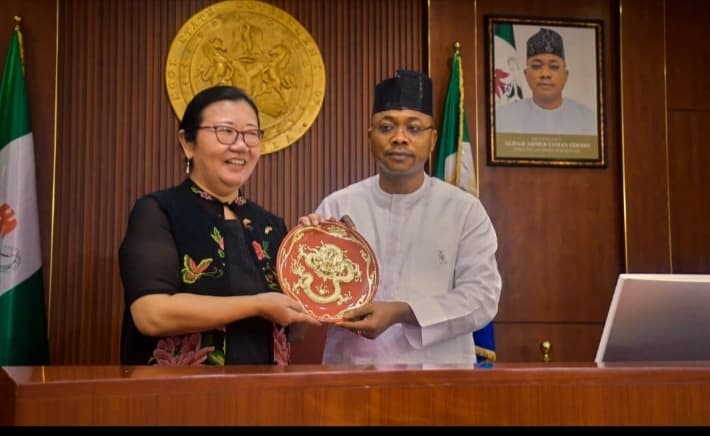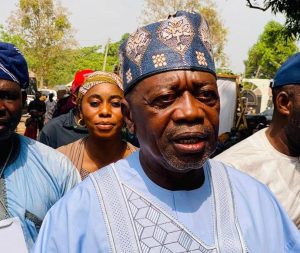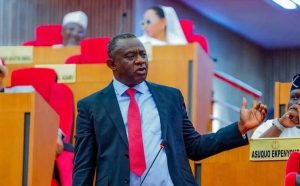Gov Ododo’s Visionary Partnership with China Set to Transform Kogi State – by Williams Charles Oluwatoyin

In a bold stride toward economic revitalization, Governor Usman Ahmed Ododo of Kogi State has secured a landmark partnership with the Chinese government to establish the Hunan Special Economic Zone (SEZ)- a visionary project poised to redefine industrialization, job creation, and sustainable development in North-Central Nigeria. Modeled after China’s globally acclaimed SEZs, this initiative will create a designated area within Kogi State operating under tailored regulatory and fiscal policies to attract foreign investment, particularly from Hunan Province, a Chinese industrial powerhouse renowned for its expertise in agriculture, machinery, renewable energy, and advanced manufacturing.
The partnership strategically leverages Hunan’s industrial prowess and Kogi’s unique advantages, including its central geographic location, vast mineral resources (iron ore, coal, and limestone), and untapped agricultural potential. Key sectors prioritized for development include agro-processing, light manufacturing, renewable energy, and logistics, with incentives such as tax breaks, streamlined business registration, and state-of-the-art infrastructure to entice global firms.
The construction phase of the SEZ alone is expected to generate thousands of jobs for local workers in sectors like construction, transportation, and engineering, providing immediate relief to unemployment while injecting liquidity into Kogi’s economy. Chinese investment will also catalyze critical infrastructure upgrades, including roads, power plants, and broadband networks, addressing longstanding gaps and improving connectivity across the state. Technical partnerships with Chinese firms will further equip Kogi’s workforce with vocational training in modern manufacturing and agribusiness, while small and medium-sized enterprises (SMEs) stand to benefit from supply chain opportunities linked to SEZ industries.
Beyond short-term gains, the SEZ promises to diversify Kogi’s economy by reducing reliance on federal allocations through a robust private sector. Agro-processing industries, for instance, will add value to cassava, yam, and rice-staples of Kogi’s agrarian economy- transforming them into export-ready products. Advanced technology transfers in renewable energy, such as solar panel production, and smart agriculture could position Kogi as a leader in sustainable industrialization. The zone’s strategic location, near the River Niger and national rail networks, will enhance trade links to Abuja, Lagos, and neighboring West African countries, bolstering Kogi’s role as a logistics hub. Over time, increased foreign exchange earnings, expanded internally generated revenue (IGR), and long-term job stability are projected to elevate living standards, curb rural-urban migration, and foster inclusive growth.
Governor Ododo’s pursuit of the Hunan SEZ aligns seamlessly with Nigeria’s Industrial Revolution Plan and the objectives of the African Continental Free Trade Area (AfCFTA). His administration’s emphasis on public-private partnerships reflects a pragmatic governance style prioritizing economic resilience over short-term gains. “This partnership is not just about factories and profit margins; it is about empowering our people and securing a future where Kogi stands as a beacon of innovation in Africa,” Ododo remarked.
As construction commences, the Hunan Special Economic Zone marks a defining chapter in Kogi’s history, underscoring Governor Ododo’s forward-thinking leadership and dedication to inclusive development. By merging Chinese expertise with local potential, this initiative promises to unlock Kogi’s latent economic power, positioning the state as a model of 21st-century industrialization in Africa. All eyes now turn to Kogi- a state poised to rise as a testament to visionary governance and strategic global collaboration.







